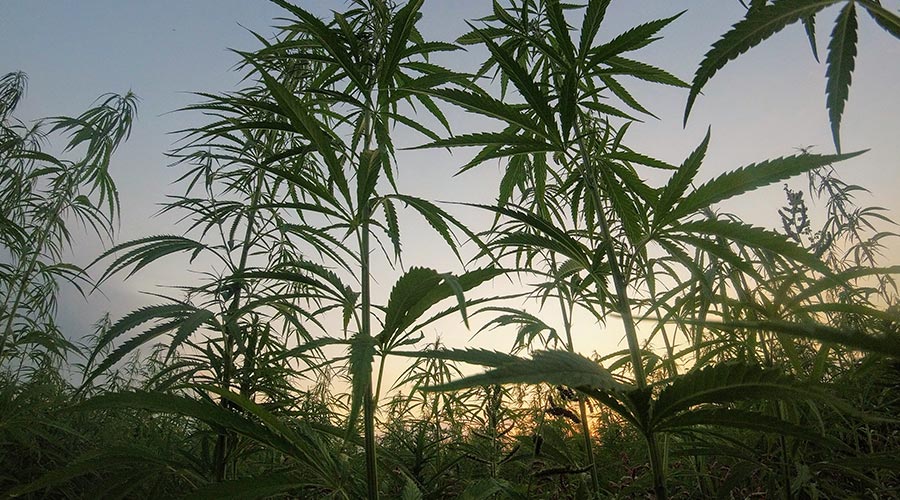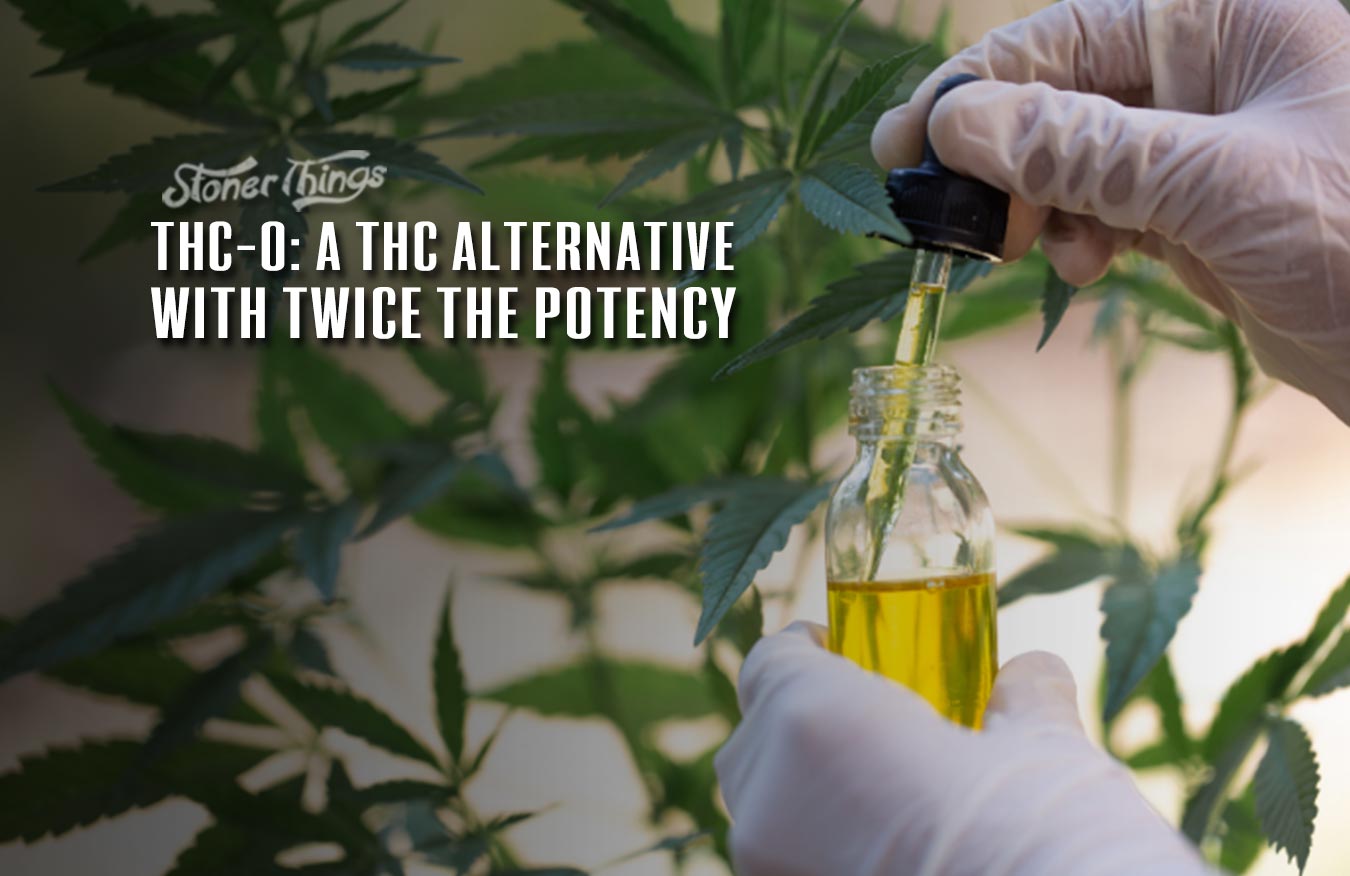Even with federal legalization on the horizon, the current level of federal cannabis prohibition on THC is still an obstacle for consumers and businesses alike. With the 2018 Farm Bill, hemp-derived cannabinoids were placed in a legal gray area and made THC alternatives like delta-8 THC legal. This week, we’re diving into another THC alternative known as THC-O. Here’s everything you need to know about it.
The skinny on THC alternatives
Under the Farm Bill, cannabinoids found in hemp are legal on the federal level, though cannabinoids found in cannabis are still Schedule 1 Substances. However, many THC alternatives have been found in hemp, and these alternatives are legal.
The most popular hemp-derived THC alternative is delta-8 THC. Delta-8 THC is practically the same as delta-9 THC, which is the kind that causes us to feel high when we use cannabis. However, delta-8 THC is an isomer, so it’s structure is a little different from standard THC. Further, it’s synthesized from CBD and found naturally in hemp.
Delta-8 THC is slightly different from delta-9 THC thanks to its different structure. It offers practically all the same effects as delta-9 THC, but our bodies have a harder time processing them so they tend to feel less potent. Delta-8 THC is sometimes called “diet weed” because it offers the same effects but a much milder high.
However, delta-8 is found in such small amounts in hemp plants that it’s economically unwise to extract it directly from hemp. That’s why many companies will synthesize it in a lab from CBD, which is much more abundant in hemp plants. Since the Farm Bill states that hemp derivatives and isomers are legal, delta-8 synthesized from hemp is legal.
With that said though, there isn’t nearly as much regulation on hemp derivatives as there is on cannabis products. Delta-8 THC sourced from unregulated synthesis techniques raises a concern for the long term health and safety of consumers. Synthesizing delta-8 THC from CBD involves the use of toxic chemicals and catalysts to transform the CBD into THC. Without regulations, some producers may leave trace amounts of these known carcinogens in their products.
With that in mind, a few states have moved to ban delta-8 THC. It’s questionable legal status, high-inducing effects, and the lack of regulation makes delta-8 somewhat sketchy in the eyes of consumers and public health and safety officials alike. Most states, however, haven’t even addressed the issue. In many places, delta-8 THC can be bought and used freely. It’s especially popular in states where consumers don’t have cannabis industries or access to state-licensed cannabis products.
What is THC-O?
THC-O-Acetate, better known as THC-O, is the newest THC alternative to hit the scene. Much like delta-8 THC, it’s synthesized from CBD and found in trace amounts in hemp plants. However, it’s vastly similar to delta-9 THC. To make it, delta-8 THC molecules are altered using strong chemical reactions to replace some of its properties.
Essentially, the reactions replace the THC hydroxyl group with an Acetyl group, resulting in a molecule that is easier for our bodies to absorb and use. Since the chemical reaction changes the molecule’s membrane permeability and fat solubility, it feels much more potent than delta-9 THC.


However, unlike THC or its other alternatives, THC-O needs to be metabolized before you start to feel it. THC-O itself is inactive and offers no pharmacological activity. For it to work, it needs to be metabolized, or transformed, by the body before it can be processed. Much like edibles, THC-O must be eaten before it can bind to the CB1 receptors in our endocannabinoid systems and cause the intoxicating effects. Also like standard delta-9 edibles, there is a delay before you’ll begin to feel it.
At the end of the day, THC-O is still relatively new when it comes to humans, and we don’t know much about it. While it’s available for purchase in many places, there isn’t a ton of information out there about its full range of effects or how it works in the body.
How strong is THC-O?
Since there isn’t a ton of research on THC-O out there yet, we have to rely on anecdotal evidence from people who have used it. Many users claim that THC-O is twice as potent as delta-9 THC. Some even think it’s stronger than that. It feels like a high dose of edibles, but more intense. In fact, many users report that THC-O feels more like a psychedelic in its physical and mental effects. The high is distinctly different from the euphoric high caused by delta-9 THC.
Is THC-O safe?
THC-O was first discovered by scientists in the 1940s looking at its potency and effects in dogs, though little to no research has been done with humans. Studies haven’t been conducted on its safety or effectiveness, and there are little to no regulations on it, much like delta-8 THC and other hemp-derived isomers and derivatives.
Since THC-O is derived from delta-8 THC using dangerous chemicals, there are several possible sources of contaminants that can end up in the final products. Some of these include synthetic byproducts, unnatural isomers created by accident, or other residuals from toxic solvents, acids, or bleaching clays.
There have been times that unregulated cannabis derivatives have caused serious health concerns, including the vape crisis which caused Vitamin E poisoning and long-term respiratory illnesses in thousands of people. Further, unregulated means largely untested, and with THC-O’s delayed effects and higher potency, this could lead to some seriously unpleasant experiences.
However, it still hasn’t been deemed unsafe. Use your best judgment with it and consider the information above. If you do decide to try it yourself, use it like an edible. Start with a low dose to see how it affects you and wait a few hours before using more.
Is THC-O legal?
THC-O’s legality is questionable, like other THC alternatives. There aren’t any safety data studies out there, so FDA approval is a long way away. Further, it might also be considered a controlled substance since it can also be synthesized from delta-9 THC. It is different from other THC alternatives since it isn’t a naturally occurring compound found in cannabis. It’s synthesized in a lab. Technically speaking, THC-O is legal, though there’s a good chance that’ll change as it catches mainstream appeal. Always follow state and local regulations when it comes to consuming cannabis products.
Final thoughts on THC-O and THC alternatives
At the end of the day, it’s important to really drive home that the synthesis of THC-O from hemp and the products made with it aren’t regulated, so there’s no way to know if a product will be safe or pure. There are almost no studies claiming these products are safe in humans. If you’re thinking about trying THC-O, keep in mind that it’s twice as strong as delta-9 THC and feels slightly psychedelic, so proceed with caution. Always start with a low dose and wait.













